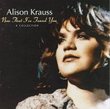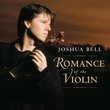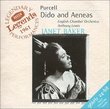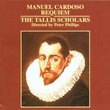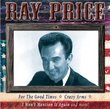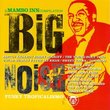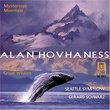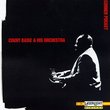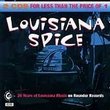| All Artists: Giacomo Puccini, Vincenzo Bellini, Gioachino Rossini, Charles Gounod, Giuseppe Verdi, Jules Massenet, Gaetano Donizetti, Ruggero Leoncavallo, Francesco Cilea, Georg Solti, Carlo Felice Cillario, Anton Guadagno, Luis A. Garcia Navarro, Luis García Navarro, Gianfranco Masini, Georges Prêtre, Nello Santi, Shirley Verrett, London Philharmonic Orchestra, RCA Italiana Opera Orchestra Title: Montserrat Caballé: Ultimate Collection Members Wishing: 1 Total Copies: 0 Label: RCA Release Date: 5/25/1999 Genres: Pop, Classical Styles: Vocal Pop, Opera & Classical Vocal Number of Discs: 2 SwapaCD Credits: 2 UPC: 743216346424 |
Search - Giacomo Puccini, Vincenzo Bellini, Gioachino Rossini :: Montserrat Caballé: Ultimate Collection
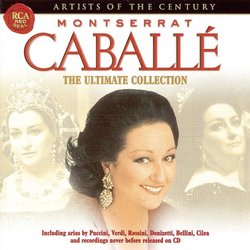 | Giacomo Puccini, Vincenzo Bellini, Gioachino Rossini Montserrat Caballé: Ultimate Collection Genres: Pop, Classical
|
Larger Image |
CD DetailsSimilarly Requested CDs
|
CD ReviewsThe soprano all the others want to learn from... Perfection. Roberto Gonzalez | Buffalo, NY | 09/06/2001 (5 out of 5 stars) "I have at least 30 Monse recordings. She was the first opera singer I heard. Wow, what a collection of beauty. Her pianissimos are amazing. Cheryl Struder said in an interview that Monse is the soprano all the others want to learn from. Placido Domingo said that he does not know how she breathes. I do not know either. Her technique is so perfect and the passion she conveys will bring tears to your eyes like it has brought tears to mine. "E strano/Sempre libera" is great. She does not sing the high last note but anyway that ultra high note is optional in the original score. Her performance of the aria is so good you do not need the high last note. She does some tricks to avoid the final stacatti in "Caro nome" but that aria is not for her voice anyway. But she does it beautifully. The "Si mi chiamano Mimi" is electrifying. "Il primo bacio e mio". Wow. Try also "Vissi d'arte" (Tosca) and "Signore ascolta" (Turandot). May God bless you my lovely Monse. I am looking forward to listen to your next 100 compilations." Satisfying compilation of Caballe arias Matteo | Oakland, CA United States | 06/27/2002 (4 out of 5 stars) "While I applaud any compilation that culls from as wide a recording corpus as Montserrat Caballe's, I actually found myself somewhat disappointed in this 2-CD set. But Caballe's singing is a delight and certainly makes the compilation worth the bargain price.First, the good stuff. This set captures some material that was not commercially available until now, and it is brilliant. Mostly I am referring to Caballe's partnership with Gianfranco Masini and the Barcelona Symphony Orchestra. With this ensemble she recorded the arias from "La Sonnambula," "Il Trovatore," "Adriana Lecouvrer," "Rigoletto," and "Suor Angelica." Here we find Caballe's voice at its richest and most luxurious. "Caro nome," though not written for someone of her vocal type, is nevertheless a delightful suprise, with a trill that is surely the envy of many, and an ability to sustain it that is remarkable. The other arias with Masini fall right into her vocal style and they are magnificent. Other newly released tracks: an estimable "Vissi d'arte" and a solid "Willow Song."Also commendable are the Donizetti arias (rereleased here from another recording available on RCA), the "Sempre libera" (from her solid full-length recording of "La traviata"), and the Rossini excerpts, in particular a ripping "D'amore al dolce impero" from "Armida" and beautiful duet with the superb Shirley Verret from "Semiramide."The somewhat forgettable material invloves late-career recordings of selections from Massenet's "Herodiade," Gounod's "Sapho," and Bellini's "Adelson and Salvini." None of these show off Caballe's mature voice to any benefit, though they are a testament to the power of her voice even through the end of her performing career.What is disappointing about this album is what it leaves out. RCA culled material from two brilliant albums, "Montserrat Caballe Sings Bellini and Donizetti" and "Rossini, Donizetti, Verdi: Rarities" when putting this compilation together, but they omitted some of the best material from each. No "Ultimate Collection" is complete without Caballe's "Il Pirata" Mad Scene and "Casta diva" from the aforementioned "Montserrat Caballe Sings Bellini and Donizetti." The "Casta diva" that was chosen is mediocre at best. From the "Rarities" album, the compilers should have taken the brilliant final aria from "La Dona del Lago," the aria from "Tancredi," or Mina's aria from "Aroldo." Granted, it is only fair to evaluate an album for what is on it, but RCA goofed by letting some lesser material crowd out these gems. On the whole, however, this collection is certainly worth the having. And the price is unbeatable. But I cannot quite bring myself to call this set an "Ultimate Collection."" Amazing collection! V. Chau | San Diego, CA | 04/05/2003 (5 out of 5 stars) "I will write this review objectively, but I will not avoid praising Caballé when praise is due.First off, this compilation is amazing! I have always thrilled to hearing Caballé's voice and this compilation is no different. I am amazed at Caballé's instrument; such extraordinary purity combined with great power! Even when she sings pianissimo, she can be clearly heard! Her voice literally fills up the room. These arias really show off her remarkable voice. Of special note is her rendition of the hauntingly beautiful "Non so le tetre immagini". Amazing! Her "D'amor sull'ali rosee" is exquisite, but she sings it too softly. Her trill is quite weak. Voices like hers don't respond well to being forced to trill. The tracks from the 1990's show off the remarkable preservation of her voice. The voice retains its purity and beautiful timbre, but is now heavier and darker. "Sempre libera" is not that good. Her coloratura is not up to par with Verdi's demands and she cannot hit the high E-flat at the end. However, she sings the main part of Violetta's aria very well, with supple, gorgeous tone and ravishing pianissimos. "Ah! non credea mirarti" is ravishing, but it is missing its energetic cabaletta. Presumably, it was cut because Caballé could not deal with the coloratura. Caballé's legato lines in this aria are superb. Her version of the "Lucrezia Borgia" Prologue is masterful. Elizabeth's last aria from "Roberto Devereux" is noble and touching. She is not quite Sills, but that aria benefits from a spinto voice instead of a soubrette one. Her aristocratic phrasing is very well used throughout the selections, with a few exceptions. Her "Willow Song" is beautiful, first time on CD. However, she fails to completely show Desdemona's despair. Some parts were good, but the whole thing failed to touch the heart. Her phrasing here is too indulgent. I have to say that I prefer Sutherland's touching version on her "The Art of the Prima Donna" recording. However, I loved "Ave Maria". Caballé sounds most beautiful when singing softly and this selection really shows her in the best light. Her cadenzas are intoxicatingly beautiful. "Caro nome" is not really her aria. The coloratura is suspect and some of the staccati are replaced with upward flourishes. She avoids the last short passage of staccati. Her phrasing in this aria is way too indulgent and she really fails to suggest Gilda's innocence. Even Sutherland is better at portraying Gilda's girlish qualities. Her "Armida" aria has some nice coloratura. She does the runs really well and is fearless in the triplet passages. For some reason, she does not sing the second "fronde" in the first line of the third stanza nor does she sing the last line of this stanza, "i muti abitator". She also does not sing the last line of the fifth stanza, "il tempo vorator". Caballé's first recorded version of "Vissi d'arte, vissi d'amore" is included here. This just may be the most beautiful version of this aria ever recorded. It certainly is Caballé's best version of the aria. The climax is handled in one breath by Caballé. She diminuendos the big high note twice in the same breath. Amazing! The rolling of the "r" in "Signor" after the last diminuendo is quite nasal and reminds us that the sound we are hearing is coming from a human throat. It also shows that these diminuendos are natural and not studio produced. She infuses Tosca's aria with real feeling and piety. The compilation ends with a knockout reading of "Arrigo, parli a un core". Caballé is at her best in this aria. She sings softly to stunning effect. This version may be the most beautiful of this particular aria ever recorded. RCA has done Caballé justice with this wonderful collection. Caballé is truly a remarkable artist with a million-dollar voice. Brava!"
|

 Track Listings (12) - Disc #1
Track Listings (12) - Disc #1